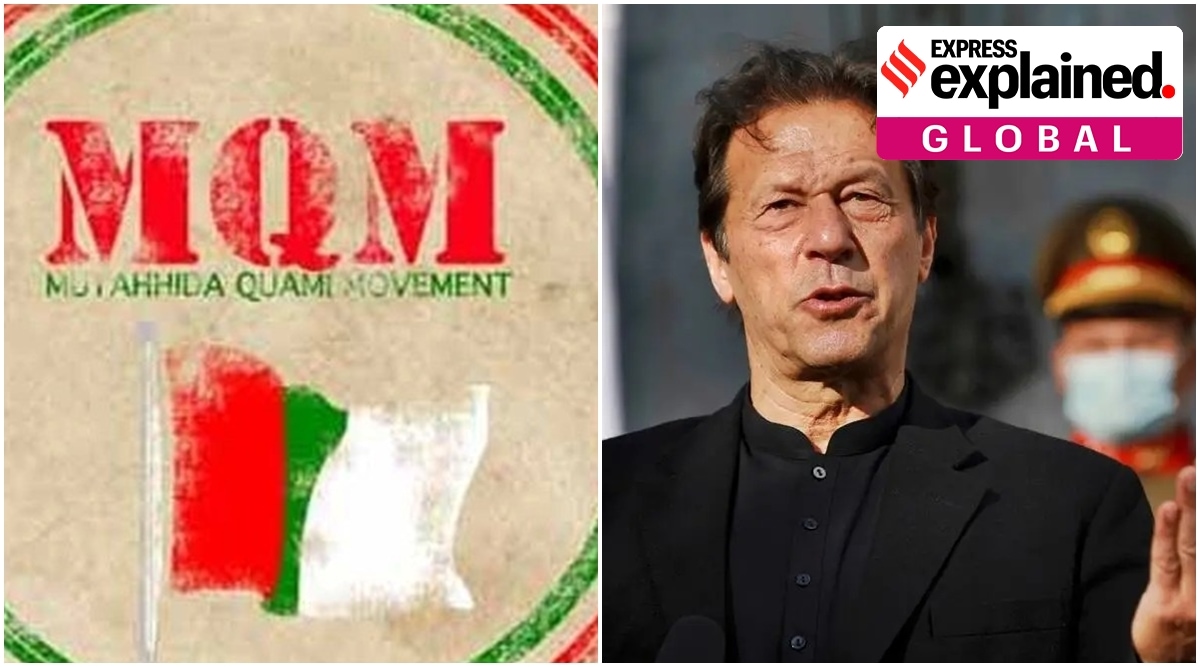Latest Comment
Post Comment
Read Comments
 The MQM’s fall began in 2010, two years after Musharraf’s ignominious exit from the political scene
The MQM’s fall began in 2010, two years after Musharraf’s ignominious exit from the political scene The Muttahida Qaumi Movement-Pakistan (MQM-P), which has seven members in the National Assembly, was the last big ally of Prime Minister Imran Khan’s Pakistan Tehreek-e-Insaaf (PTI) government.
But in overnight talks with top leaders of the joint opposition of the Pakistan Muslim League (Nawaz), Pakistan People’s Party, and Jamiat Ulema Islami (F), which continued into the early hours of Wednesday, the MQM-P signed an agreement to back the no-confidence motion against Imran.
The Prime Minister was scheduled to address the nation later on Wednesday (March 30) evening, but it was not certain whether he would ultimately speak. There was some expectation that he might announce his resignation.
The MQM-P, in its earlier avatar as MQM, saw itself as a “kingmaker” party. This time it might prove to be the king-breaker.
The MQM grew out of the All Pakistan Mohajir Students’ Organisation of the mid-1970s. Mohajir is a term used in Pakistan to describe Urdu-speaking Muslims who moved from India to the new country that was Muhammad Ali Jinnah’s promised land for the Muslims of the subcontinent. The APMSO was formed to highlight the marginalisation of the Mohajirs from Pakistan’s national life after the first few years, when the country’s centre of gravity moved to the Punjab province.
In the 1980s, at a time when all democratic forces were rallying against the military dictatorship of Zia ul-Haq and behind the Pakistan People’s Party, the APMSO grew rapidly to challenge the PPP’s hold in Karachi, and other cities in Sindh province.
Among the APMSO’s early demands were that Karachi should be carved out of Sindh into a Mohajir province. Even though the MQM started out as a creature of the establishment, its independent-minded leadership, and the party’s popularity among Karachi’s Urdu-speaking middle class and youth, set alarm bells ringing in the military establishment and political parties. The PPP and MQM fought each other on the streets of Karachi. Through the 1990s, the MQM was targeted by the military, leading to violent crackdowns and bloodbaths.
During this period, the MQM was accused of being secessionist, and conspiring to break Karachi away from Pakistan at the behest of India’s intelligence agency. MQM was seen as a “R&AW agent”. The “Indian” ethnicity of MQM members and followers was used to taint them. Adding to the suspicion, some of its leaders had escaped to India during the military operations, and were suspected to have been in touch with the Indian intelligence agency.
The promise that MQM held out for the Urdu speakers of Pakistan won the party enough votes for it to become Pakistan’s third-largest party by the 1990s, and it continued in this position until 2013. While the MQM’s politics was all in Karachi, its success in elections gave it leverage as a “kingmaker” both at the provincial and at the national level.
In 1999, in an effort to grow out of its ethnic skin and cast a wider net, it replaced “Mohajir” in its name with “Muttahida” (united). Efforts to dislodge it from the city by the PPP, which represented the Sindhis, and the Awami National Party (ANP), which claimed to represent Pashtun interests, were futile, but resulted in spiralling violence, from which the MQM did not shrink.
MQM’s strongest and most glorious phase was between 1999 and 2008, when General Pervez Musharraf, a Mohajir himself from Delhi, was in power. It was in those years that it became fully identified with the “establishment”. Its leader Altaf Hussain controlled the party from London. 
Why did the party decline?
The MQM’s fall began in 2010, two years after Musharraf’s ignominious exit from the Pakistani political scene.
Imran Farooq, a senior party leader, was killed outside his home in London. The investigation into the murder led British authorities to a huge stash of currency at Hussain’s home and office, which set off a money laundering investigation. The BBC aired fresh allegations of Hussain’s links with R&AW.
In 2016, a speech by Hussain to followers in Karachi led to large scale violence, including the targeting of two media houses. On the Pakistan government’s request, the British authorities pressed terrorism charges against Hussain. He was acquitted in February 2022.
Meanwhile, the party split many times over, and the entire Karachi-based second rung leadership of the MQM distanced itself from Hussain. On the eve of the 2018 elections, a breakaway faction called Pakistan Sarzameen Party (PSP) put up its own candidates. Its ties to the Army were apparent. The MQM, now calling itself MQM-P, won just seven seats, a historic low. It had won 18 seats in 2013, and 25 in 2008. The PSP did not win any seats.
Newsletter | Click to get the day’s best explainers in your inbox
With the security establishment helping Imran Khan stitch together a post election coalition, the MQM joined after bargaining for three ministries and getting two. In last ditch attempts to keep the MQM with him, Imran offered the party the Shipping Ministry, which it had long wanted.
But with the security establishment’s umbrella no longer over Imran’s head, the MQM switched sides, sealing Khan’s fate.